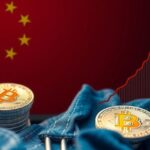China’s Technological Dominance and the Challenges for the UK
China’s technological rise is attributed to policies that foster significant investments in AI and clean tech. The country produces thousands of STEM PhDs and holds a considerable patent lead, particularly in clean technologies. Concerns about censorship and security are prevalent as the UK assesses its relationship with China to promote innovation while protecting national interests.
China’s rapid ascent in technology is the result of focused policies and significant investment, not mere happenstance. The emergence of the DeepSeek AI, developed by a Hangzhou hedge fund for around $5.6 million, underscores the country’s commitment to nurturing advanced technologies. With the vast availability of resources such as microchips, data, and a high volume of STEM graduates, China’s technological dominance is becoming increasingly apparent.
Each month, Chinese universities produce over 6,000 STEM PhDs, a number significantly higher than in the United States or the United Kingdom. Furthermore, China filed 1.7 million patents in 2023 compared to the United States’ 600,000, demonstrating a robust increase in innovation. Although the quality of some patents has been debated, China’s progress in citation-weighted patents indicates substantial advancements in recognized research.
The cost of lithium-ion batteries in China has drastically decreased over the past decade, facilitating the country’s leadership in electric vehicles (EVs). This trend is mirrored in various technological domains, as evidenced by manufacturers transitioning towards innovative concepts like electric intelligent vehicles. In addition, China’s consumer electronics sector is integrating into auto manufacturing, utilizing AI-driven operations to enhance production efficiency.
With an overwhelming percentage of clean tech patents filed in China, the country is on track to fulfill its ambition of becoming the world’s foremost science and engineering nation. According to the US National Science Board, China is already outperforming the US in AI-related publishing, patenting, and education. Observers have noted substantial improvements in air quality and widespread adoption of electric vehicles during visits to China by UK officials.
Concerns regarding censorship, democracy, and security remain prominent within the discourse on China’s technological advancements. The accessibility to massive data sets not readily available in Western nations has propelled China’s AI industry forward. As the international community reevaluates its relationship with China, particularly following the US Congress’s concerns over applications like TikTok, balancing innovation with national security has become paramount.
The UK government is faced with the challenging task of fostering productive relations with China amidst these tensions. Chancellor Rachel Reeves emphasized the necessity for a long-term partnership with China that aligns with national interests, underlining the significance of enhancing economic cooperation. Several European countries have similarly engaged with China, exploring the potential for technology transfer and collaboration in advanced manufacturing.
China’s technological development has rapidly progressed due to its strategic policies and substantial investments in research and education. The country has outpaced its global counterparts in producing STEM graduates and filing patents, solidifying its position at the forefront of innovation, particularly in artificial intelligence and clean technology. Understanding these dynamics is crucial to grasp the implications of China’s rise on the global technology landscape and its effects on relationships with Western nations.
In summary, China’s technological prowess is a product of deliberate policies, substantial education output, and strategic innovation. The rapid advancement in fields such as AI and clean technology positions China as a formidable player in the global economy. The West, particularly the UK, must navigate the complexities of engagement and competition with China to safeguard national interests while fostering cooperative opportunities.
Original Source: www.bbc.com








Post Comment